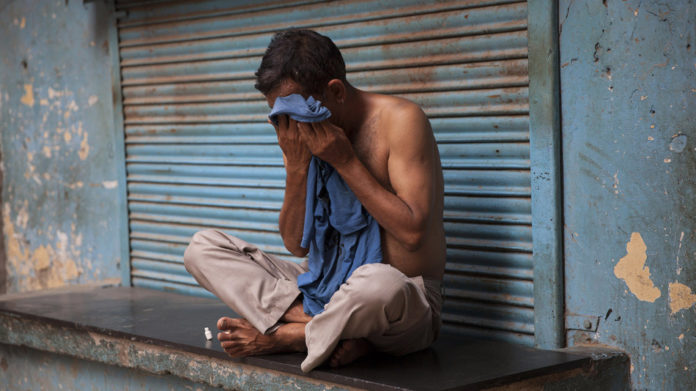Massive heat wave in India claims more than 800 lives

India has been hit by a massive, widespread heatwave that has left nearly 800 people dead. Odisha and the coastal regions of Telangana and Andhra Pradesh have experienced the brunt of the hot weather, with temperatures exceeding 45 degrees Celsius (113 degrees Fahrenheit).
The heatwave has also engulfed the north — Madhya Pradesh, Chhattisgarh, Rajasthan, Chandigarh and Delhi. The India Meteorology Department (MET) has forecast the heat to continue for at least the next 48 hours, with conditions possibly getting worse in the coming days.
May into early June are traditionally the hottest time of year in India, when the country is particularly prone to deadly heat events. Such heatwaves typically end once the Indian Monsoon kicks in, though there are some doubts as to how widespread and on time the Monsoon will be this year.
The majority of the heat victims have been from the working class with direct exposure to the scorching sun and no air conditioning. The southern state of Andhra Pradesh has been the worst hit, where about 250 people lost their lives in the past week.
Authorities have asked people to stay indoors and consume more water and other fluids to keep the effects of the heat at bay. People are also advised to carry umbrellas and to wear light cotton clothing while going out in the sun.
The abnormally high temperatures are typical in northwestern regions of India during the summer, but with each passing year, the impacts seem to worsen, with more heatwave-related deaths.
The heatwave is resulting in many other health issues too, adversely affecting people who are complaining of discomfort and physiological stress.
The health impacts of extreme heat can result in heat cramps accompanied by swelling, fainting and fever. The heat exhaustion can lead to fatigue, dizziness, nausea and sweating. In extreme conditions, delirium and seizures could prove fatal.

Computer model projection for temperature departures from average (degrees C) on May 27, 2015.
Image: WeatherBELL Analytics
With the growing El Niño event, the year 2015 is likely to be the warmest year on record globally, surpassing the mark set in 2014, according to data from the U.S. National Oceanic and Atmospheric Administration (NOAA).
The onset of the Monsoon is likely to be in the last week of May in Kerala, but the rainfall will initially be confined to only the southern region of the country. For the rest of the states, the Monsoon is expected to hit around mid-June, giving the people much-needed respite from the intense temperatures. The MET has predicted a below-normal Monsoon this year.
Complicating the forecast is an area of much above average ocean temperatures in the Indian Ocean, which may make the Monsoon season differ from what would otherwise occur in a typical El Niño year.
Additional reporting by Mashable Science Editor Andrew Freedman.
